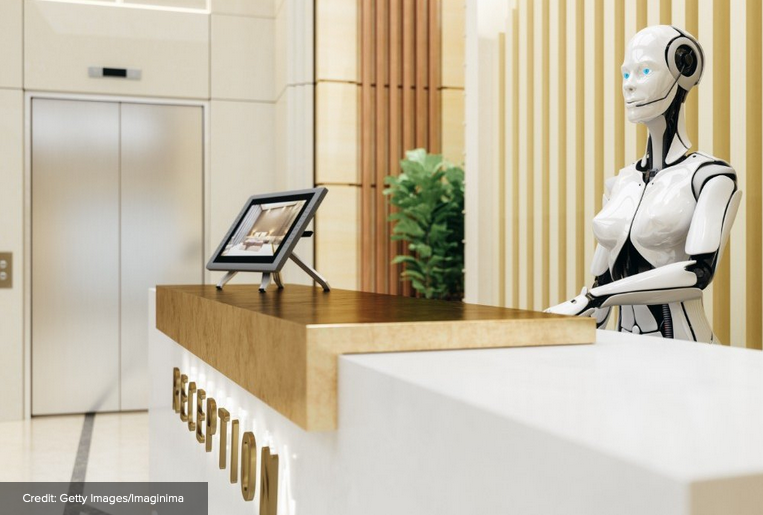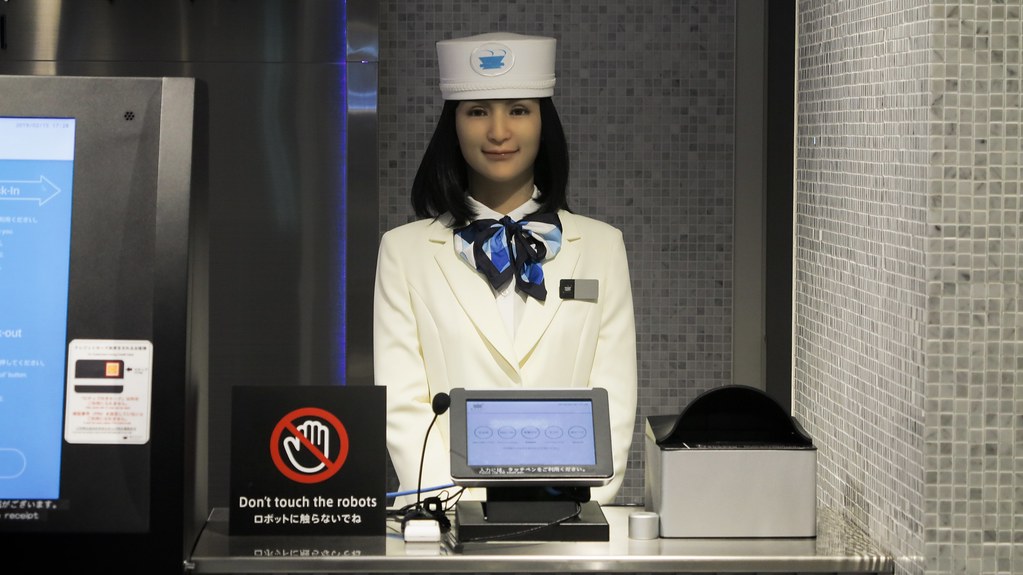- Stay Connected
 Abraham Lincoln
If given the truth, the people can be depended upon to meet any national crisis...
Abraham Lincoln
If given the truth, the people can be depended upon to meet any national crisis...
 Guildford news...
for Guildford people, brought to you by Guildford reporters - Guildford's own news service
Guildford news...
for Guildford people, brought to you by Guildford reporters - Guildford's own news service
Is That Room Service Or, Should I Say, Robot Service?
Published on: 10 May, 2020
Updated on: 10 May, 2020
Could hotel service robots help the hospitality industry after COVID-19?
Robots cannot catch biological viruses.
This could be a major factor for their further development in a post-Covid-19 world and a new research study, investigating how service robots in hotels could help redefine leadership and boost the hospitality industry, has taken on new significance.
The study by academics at the University of Surrey and MODUL University, Vienna focuses on how HR experts perceive service robots and their impact on leadership and HR management in the hotel industry.
Lead author Dr Tracy Xu, Lecturer in Hospitality at The University of Surrey’s world-renowned School of Hospitality and Tourism Management, has had her paper published in the International Journal of Contemporary Hospitality Management.
The research behind the paper involved speaking to 19 hotel HR experts to identify the key trends and major challenges that will emerge in the next ten years and how leaders should deal with the challenges brought about by service robot technologies.
Results showed that while service robots are anticipated to increase efficiency and productivity of hotel activities, they may also pose challenges such as high costs, skill deficits and significant changes to the organizational structure and culture of hotels. So the balance between the roles of service robots and human employees will need to be carefully evaluated.
The project finished in March 2020 just as COVID-19 broke out. As the virus rendered non-essential travel impossible, most hotels around the globe are feeling a catastrophic economic impact.
Many industries are having to reinvent processes and systems to cope with a new isolated way of life and robotic interaction in hotels could facilitate more socially distanced models of operation to enable a safer and faster reopening and recovery of some hotels.
Dr Xu said: “Application of service robots in the hotel industry is on the rise. With the added factor of a need to reassure potential guests that their stays will be compatible with minimised social contact and human interaction, this process could be accelerated.
“During the lockdown period, it is likely that hotel managers will be planning for a ‘fresh start’ in the recovery and rebuilding period after the social isolation restrictions have been lifted and this is predicted to have a positive stimulus on the adoption of service robots.
“The anticipated applications and integration of robotic technology will require leaders of the future to carefully consider the balance between the roles of service robots and human employees in the guest experience and to nurture a work environment that embraces open-mindedness and change.”
Dr Xu was joined in her research by fellow Surrey colleague, Teaching Fellow, and Jason Stienmetz, Assistant Professor at MODUL University Vienna.
Fellow researcher, UoS teaching fellow Mark Ashton said: “This is the first type of study to examine hospitality leadership and human resource management in the context of robotized hotels and at a time where hotels seem to need it most. Forward-thinking businesses who are proactively prepared for the introduction of these exciting new technologies will benefit in the long term.”
















Recent Comments